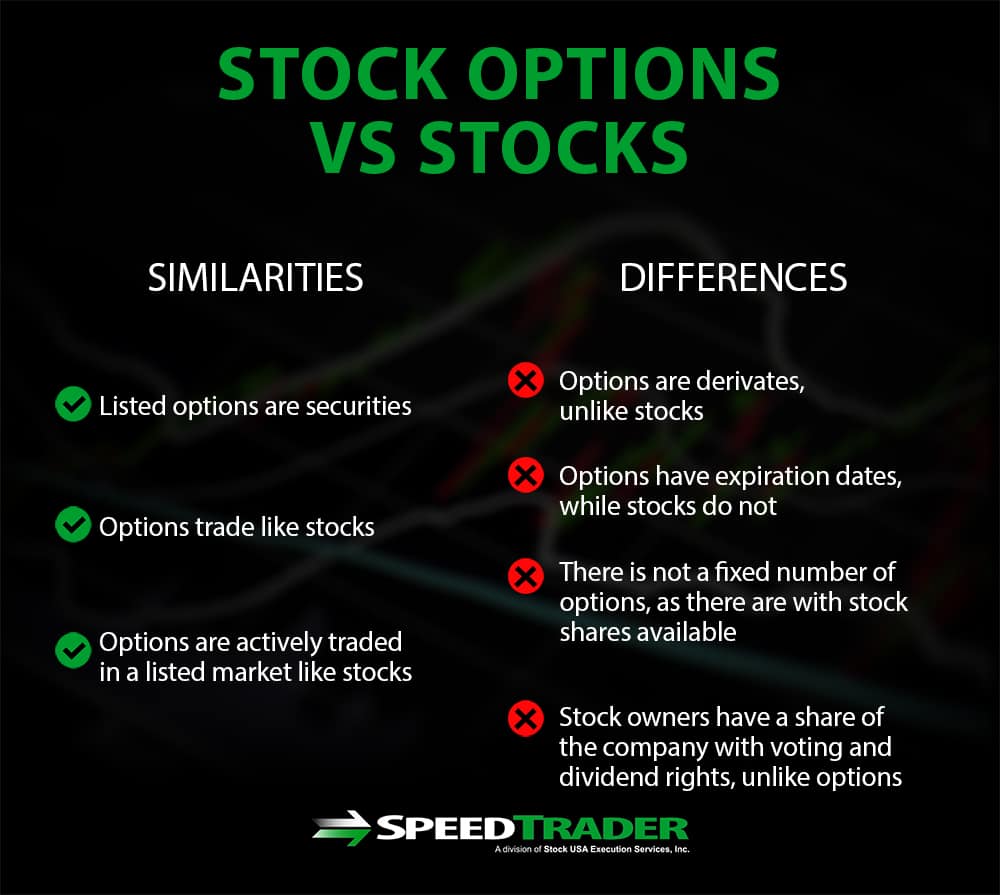Investing in the stock market can be a lucrative endeavor, but it also carries inherent risks. Understanding these risks is paramount for making informed decisions about how to allocate your investments. Among the various investment instruments available, stock options stand out as a unique and potentially rewarding option, but they also come with distinct risks that differ from traditional stock trading.

Image: www.pinterest.jp
Stock Options vs. Normal Trading
Normal trading involves buying and selling shares of a company’s stock. When you buy a stock, you own a small portion of that company and can benefit from its growth or suffer losses if its value declines. In contrast, stock options are contracts that give the holder the right, but not the obligation, to buy or sell a specific number of shares of a particular stock at a predetermined price on or before a certain date.
There are two main types of stock options: calls and puts. A call option gives the holder the right to buy shares at a specified price, while a put option gives the holder the right to sell shares at a specified price. The price at which the shares can be bought or sold is known as the strike price, and the date on which the option expires is known as the expiration date.
Advantages and Disadvantages of Stock Options
Stock options offer several potential advantages over normal trading. First, they provide leverage, allowing investors to control a large number of shares with a relatively small investment. This can放大潜在利润,但这也可能放大潜在损失. Second, stock options offer limited risk because the most an investor can lose is the premium paid for the option. This makes them a more attractive option for investors who are not comfortable with the higher risks associated with normal trading.
However, stock options also come with certain disadvantages. One disadvantage is that they have a limited lifespan. If the option is not exercised before the expiration date, it becomes worthless. Another disadvantage is that stock options can be complex and difficult to understand. This makes it important for investors to carefully consider their investment objectives and risk tolerance before investing in stock options.
Risks Associated with Stock Options
In addition to the general risks associated with all investments, stock options carry several unique risks. These include:
- Time decay: The value of an option decays over time as the expiration date approaches. This is because the closer the option gets to expiring, the less likely it is that the underlying stock will reach the strike price.
- Volatility: The value of an option is highly sensitive to the volatility of the underlying stock. If the stock price fluctuates significantly, the value of the option can change dramatically.
- Liquidity risk: Stock options are not as liquid as stocks, which means that it may be difficult to find a buyer or seller when you want to close out your position. This can be a problem if you need to sell your option quickly to recoup your investment.

Image: ruangmenggambar607.blogspot.com
Stock Option Risk Vs Normal Trading

Image: onlinedigitalcrypto.com
Conclusion
Stock options can be a powerful investment tool, but they also carry unique risks that are not present in normal trading. Understanding these risks is essential for making informed decisions about whether or not to invest in stock options. Investors who are considering investing in stock options should carefully consider their investment objectives, risk tolerance, and the potential risks and rewards involved.






